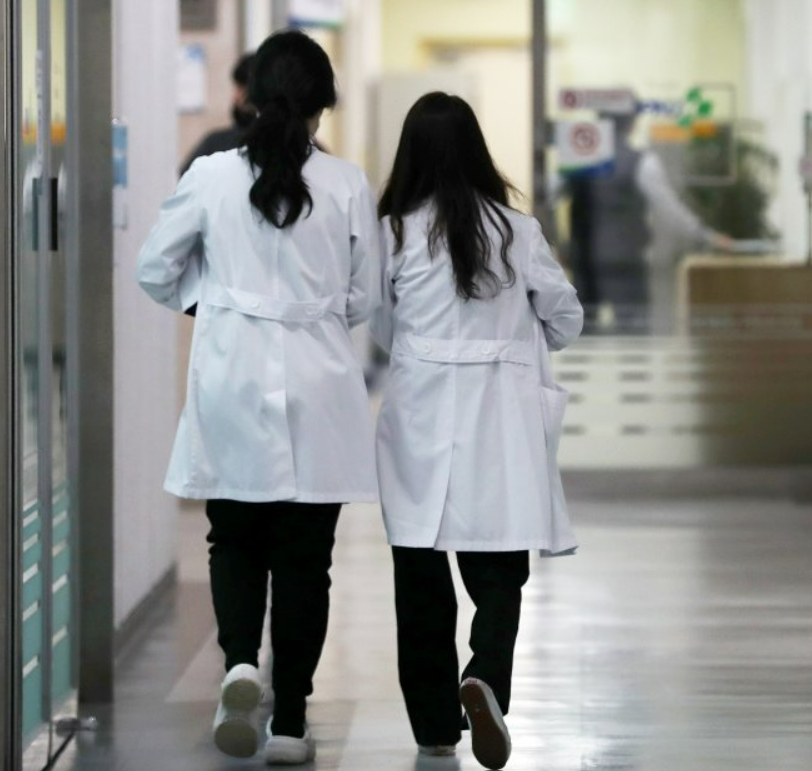 |
| ▲ Doctors are leaving hospitals due to the government's medical school quota expansion (Source: NEWS 1) |
Recent Government Announcement on Medical School Expansion Sparks Widespread Backlash. This announcement to increase medical school quotas by 2,000 starting from the 2025 academic year has ignited a significant controversy within the medical and educational sectors. In 2020, a similar expansion initiative led to more than 80% of medical residents leaving hospitals, causing disruption in the healthcare field. According to data released on February 16th, the Korean Intern Resident Association reported that some specialists from the top five medical institutions, including SNU Hospital, Severance Hospital, Seoul Asan Medical Center, Samsung Medical Center in Seoul, and CMCS St. Mary's Hospital, submitted resignation letters. Starting from 6 a.m. on the 20th, they began withholding their services. Resignation submissions from specialists have been reported not only in Seoul but across the nation, with over 100 specialists from Pusan National University Hospital and around 10 from Dong-A University Hospital also tendering their resignations.
Protests erupted near the presidential office demanding a retraction of the medical school expansion policy. Approximately 5,000 members of medical associations participated in the demonstration. The ongoing situation highlights the deep divide and discontent within the medical community, as professionals express their opposition to the government's decision, foreseeing potential challenges in addressing the resulting healthcare gaps.
As doctors continue with their large- scale strikes and submission of resignation letters, the healthcare system has entered into an emergency care mode, implementing adjustments such as reducing the number of surgeries. Particularly, concerns for patients suffering from rare diseases like hemophilia or cancer are growing. The worries are exacerbated in the treatment of rare and incurable diseases, primarily conducted in large university hospitals, where the absence of specialists is keenly felt. Patients are expressing concerns about reduced medical services and delayed treatments, prompting university hospitals to devise strategies to address these issues.
In response to the collective actions of these specialists, the government has announced its countermeasures. Designated by the Minister of Health and Welfare, directives have been issued to 221 training hospitals, where specialists undergo training, prohibiting group leaves and issuing mandatory orders to maintain essential medical services. Furthermore, under medical laws that allow the government to command work commencement if group treatments are refused, the government has announced its stance to issue work commencement orders via text messages and documents to specialists, with corresponding legal measures to be taken in case of non-compliance.
The government plans to apply work commencement orders for the 8,024 specialists confirmed to have left their workplaces, and a 'detention investigation policy,' for those leading group actions. In response to the healthcare vacuum, emergency medical systems have been activated, expanding the weekday treatment hours of public hospitals. Additionally, plans are underway to open emergency rooms in 12 public hospitals, including industrial accident hospitals, military hospitals, and police hospitals, to the private sector. Outpatient services are also set to be expanded. These efforts are seen as part of the government's attempt to maintain the continuity of medical services and minimize the impact on patients.
South Korea's recent healthcare crisis has also been covered by ‘TIME,’ and ‘Bloomberg L.P.’ While highlighting that Korea has one of the lowest doctor- to- population ratios among advanced countries, the reports cite OECD data indicating a high compensation ratio for doctors compared to the average wage. They call for amicable negotiations between the medical association and the government. Some have pointed out that South Korea is the only country facing restrictions on expanding its medical workforce due to collective actions by doctors. Japan, Germany, and the UK are increasing the number of doctors in response to aging populations, and no other country has experienced large- scale collective actions by doctors during this process. In contrast, South Korea faces the reality of constrained growth in medical personnel due to doctors' resistance. This phenomenon is analyzed as stemming from differences in national healthcare systems and policies, and if this situation persists, it is expected to have a negative impact on the nation's healthcare services.
By Shin Min-joo, reporter pinky3167@naver.com
<저작권자 © The Campus Journal, 무단 전재 및 재배포 금지>

 Shrinkflation, Consumer Deception
Shrinkflation, Consumer Deception




